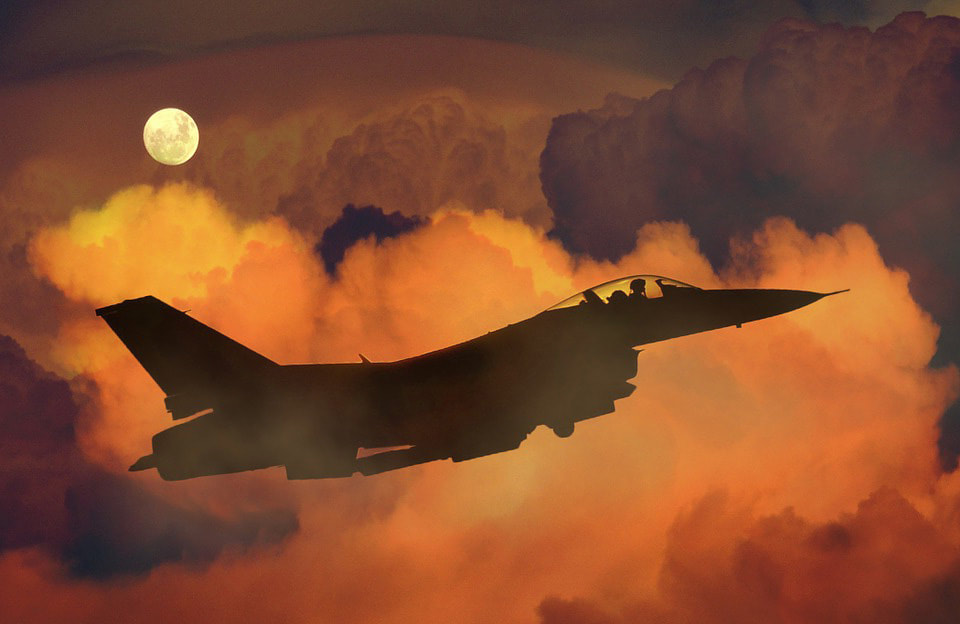"Barn's burnt down --
now
I can see the moon."
Mizuta Masahide (17th century Japanese samurai)
One reason why I am always enthusiastic about Sun Tzu and his wisdom is that I am by nature optimistic. Perhaps it's reading too many Zig Ziglar books growing up. Whatever the case, I tend to be confident and hopeful that things will work out in the future. When I am armed with Sun Tzu's practical strategies, I have a more tangible reason to be confident and hopeful.
Since youth, my confidence and hope depended upon a tremendous amount of preparation. In school, I wanted a deadline date that is far off, not because I wanted to wait, but I wanted to have more time refining and perfecting my work before the teacher sees it. Needless to say, the grades I received would make any Asian parent happy. Maybe.
There were numerous instances when I would forget to eat and lose track of time completely. That continues to this day. Part of that is because I enjoy working, and part of that is because I want the satisfaction of achieving something outstanding. Overall, the harder I work, the more confident and hopeful I get.
Going back to the quote above, Mizuta Masahide had every right to feel discouraged after his barn burned down. But as a warrior, he understood that strength lies not in things but in people, namely within himself. To still not forget our heavenly gift despite misfortune is analogous to maintaining a small beachhead despite an enemy attack to later build upon. With time and diligence, one can imagine the progress that can be made from a seemingly humble beginning.
With optimism, we give it the old college try against the odds. And should we fail, as Teddy Roosevelt once said, "at least [we fail] while daring greatly, so that [our] place shall never be with those cold and timid souls who neither know victory nor defeat."
Too often what we call realistic or reasonable is really our doubt taking hold. In much of life, especially with many people involved, there are simply too many variables to account to truly determine failure or success in the future. And so logically we choose not to make a decision at all. Doubt causes us to stop working. And stop working is something I can't imagine myself doing.
Of course Masahide isn't the only warrior who's optimistic. I would argue there is another warrior with plenty of optimism, even in the midst of considerable danger and concern:
"The day the general leads his troops into battle, it is like climbing up high and throwing away the ladder. He leads his troops deep into enemy ground, and releases the trigger. He burns his boats and destroys the cooking pots." Sun Tzu
"Get them to face danger, but do not reveal the advantages. Throw them into danger and they will survive; put them on deadly ground and they will live. Only if the troops are in situations of danger will they turn defeat into victory." Sun Tzu
Sun Tzu's thorough preparation allows him to place his soldiers in the best possible advantageous position to achieve success. Business leaders can learn from this lesson. If they aren't constantly setting the stage for their team to do great work, then they aren't doing their jobs.
Notice Sun Tzu doesn't depend on superstars to produce the results he seeks. He depended upon rather ordinary soldiers to produce extraordinary results, thanks to the strategy he conceived. Strategy leverages limited resources and enables the leader to calculate if they are sufficient for success.
However, as much as Sun Tzu emphasized doing many calculations and ensuring no miscalculations are made to make certain of victory, it would seem implausible he wasn't at all concerned about how the battle would turn out. Leaders who treat their people like their own beloved children would always be concerned, no matter how certain they feel. So without optimism, and letting doubts set in, Sun Tzu couldn't logically "release the trigger." He would pack his bags and go home. Yet he stayed and pushed his troops forward.
Furthermore, if we believe Sun Tzu lived in the real world, we would also have to believe he knew there are no guarantees in life. Except death and taxes. But victory isn't one of them. Anything that can happen might (or will) happen. Failing to calculate an unknown factor is a possibility. That factor contributing to defeat is a possibility. Sound strategy can only assure our success in the long run; the chances of making costly mistakes in the short-term, in one battle, are significantly greater.
Yet throughout The Art of War, Sun Tzu expresses complete certainty:
"No miscalculations mean the victories are certain, achieving victory over those who have already lost." Sun Tzu
"I know who will win and who will lose. A general who listens to my principles, and applies them, will surely be victorious; keep him. A general who does not listen to my principles, and does not apply them, will surely be defeated; remove him." Sun Tzu
Therefore, Sun Tzu's principles don't run counter to optimism -- they run beside and parallel to it. They complement it.
This complementary mix then demands that along with our optimism we must do the hard work to plan and prepare. Things will likely go well but there will be unforeseen setbacks, which we will learn from as we move forward. No matter what, we must not stop being proactive.
So if we continue on our mission, our gains will outnumber our losses. In baseball as in life, going home most of the time would be considered an extraordinary accomplishment. And in warfare as in life, going home at all would be considered an even greater accomplishment.


 RSS Feed
RSS Feed